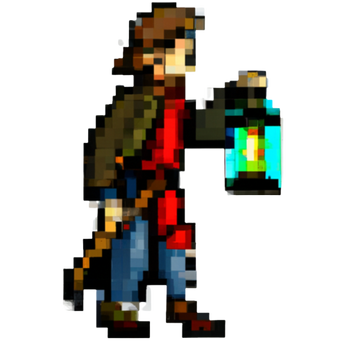The 9 Circles
The 9 Circles is a roguelike game inspired by Dante's Inferno, in which the player navigates through nine circles of Hell, each with its own challenges and enemies. The game's mechanics are built on a random level generation algorithm, which creates a unique experience for each playthrough. The game also features enemy AI that uses A* search and behavior logic to find the shortest path to the player, creating a challenging and immersive gameplay experience.
This was create as part of a Capstone project (senior thesis) and it explores the different uses of AI in videogame, while I go through the design process of creating the game, including the design, artistic, and technical choices that had to be done in order to make it into a compelling game. Some of these ranged from dialog tone, to a non-combat mechanic, to an A* search algorithm. In it I also explore the heavy use of AI generated assets and give a brief introduction to generative and transform models such as DALL-E and ChatGPT.
I explore the potential for data-driven level generation, using Bayesian inference to adapt the game to the player's playstyle. While acknowledging that this approach is computationally expensive, I tried simpler solutions, such as monitoring the time it takes for the player to complete each level and adjusting the difficulty accordingly. These eventually fail, leading me to rethink the whole point of the approach.
It concludes by outlining the next steps for the game's development, including improving the game mechanics by adding more items and enemies, diversifying the art with new environments, and introducing bosses at the end of each level. It also suggests adding more elements of mystery and surprise to the story, exploring the themes of the original poem in more depth, and adding more choices and branching paths to the game.
This is an early demo of the functionalities of the game. You can find the full draft for the paper written about this here.
| Status | In development |
| Platforms | HTML5 |
| Author | phasc |
| Made with | Unity |
